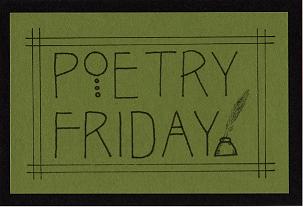
 Wildly Romantic: The English Romantic Poets: The Mad, The Bad, And The Dangerous by Catherine M. Andronik. Reviewed from ARC; source: ALA Midwinter 2007.
Wildly Romantic: The English Romantic Poets: The Mad, The Bad, And The Dangerous by Catherine M. Andronik. Reviewed from ARC; source: ALA Midwinter 2007.The Plot: Ah, some of the original bad boys. The revolutionary who became Mr Conservative; the drug addict, brilliant, who constantly disappointed; the man who inspired the infamous "mad, bad, and dangerous to know;" the free love, fire-starting, bigamist; and the guy with the talent from the "wrong side of the tracks" who just as it looked like he could have it all -- got TB and died.
The Good: Andronik does a wonderful job of introducing us to William Wordsworth, Samuel Taylor Coleridge, Lord Byron, Percy Bysshe Shelley, and John Keats, weaving mini biographies of individuals against the broader story of England in the early 1800s. She explains how these five not only lived lives that were far from boring; but how poetry influenced them and how they influenced poetry. As a teen, I loved Shelley; in college, it was Byron; and now, after reading this, John Keats is the man.
This is a great sampler, of both the poets and their poetry; it's for older readers, because Andronik doesn't shy away from such topics as illegitimate children, incest, and drugs. About the only thing missing is rock'n'roll... and wow, these men and their groupies would have given any present day musician a run for their money. It's like Almost Famous: The 1800s version.
And yes, respect is given to the sisters, wives and daughters, who may not be as famous (well, except for that book about that monster....) but were also talented and bright.
So, a Poetry Friday sampler for you:
Ode on Intimations of Immortality from Recollections of Early Childhood
by William Wordsworth
There was a time when meadow, grove, and stream,
The earth, and every common sight
To me did seem
Apparelled in celestial light,
The glory and the freshness of a dream.
It is not now as it hath been of yore;--
Turn wheresoe'er I may,
By night or day,
The things which I have seen I now can see no more.
The rainbow comes and goes,
And lovely is the rose;
The moon doth with delight
Look round her when the heavens are bare;
Waters on a starry night
Are beautiful and fair;
The sunshine is a glorious birth;
But yet I know, where'er I go,
That there hath past away a glory from the earth.
The rest of the poem is at Poets.org.
****
Kubla Khan Or a Vision in a Dream. A Fragment
by Samuel Taylor Coleridge
In Xanadu did Kubla Khan
A stately pleasure dome decree:
Where Alph, the sacred river, ran
Through caverns measureless to man
Down to a sunless sea.
So twice five miles of fertile ground
With walls and towers were girdled round:
And there were gardens bright with sinuous rills,
Where blossomed many an incense-bearing tree;
And here were forests ancient as the hills,
Enfolding sunny spots of greenery.
The rest of the poem is at Poets.org.
*******
She Walks in Beauty by George Gordon, Lord Byron
She walks in beauty, like the night
Of cloudless climes and starry skies;
And all that's best of dark and bright
Meet in her aspect and her eyes:
Thus mellowed to that tender light
Which heaven to gaudy day denies.
One shade the more, one ray the less,
Had half impaired the nameless grace
Which waves in every raven tress,
Or softly lightens o'er her face;
Where thoughts serenely sweet express
How pure, how dear their dwelling place.
And on that cheek, and o'er that brow,
So soft, so calm, yet eloquent,
The smiles that win, the tints that glow,
But tell of days in goodness spent,
A mind at peace with all below,
A heart whose love is innocent!
******
Love's Philosophy by Percy Bysshe Shelley
The fountains mingle with the river
And the rivers with the ocean,
The winds of heaven mix for ever
With a sweet emotion;
Nothing in the world is single,
All things by a law divine
In one another's being mingle—
Why not I with thine?
See the mountains kiss high heaven,
And the waves clasp one another;
No sister-flower would be forgiven
If it disdain'd its brother;
And the sunlight clasps the earth,
And the moonbeams kiss the sea—
What is all this sweet work worth
If thou kiss not me?
and finally
Ode to a Nightingale by John Keats
....
Darkling I listen; and, for many a time
I have been half in love with easeful Death,
Call'd him soft names in many a musèd rhyme,
To take into the air my quiet breath;
Now more than ever seems it rich to die, 55
To cease upon the midnight with no pain,
While thou art pouring forth thy soul abroad
In such an ecstasy!
Still wouldst thou sing, and I have ears in vain—
To thy high requiem become a sod.
....
The full poem is at Bartelby.com.
Links:
Today's Poetry Friday round up can be found by clicking the button, above, or going to The Simple & The Ordinary.
propernoun.net book review
4 comments:
Hey, Liz. This sounds like a book I'd like a lot. Thanks for the heads up. (Thanks for your nice words about the PF article, too!)
Wow, this was like being in my Romantic Prose and Poetry class again. I mean that in a good sense.
One shade the more, one ray the less... Almost as good as "drunk with lambs". Dontcha think?
I must get this book -- and soon! Thanks for posting about it.
Post a Comment